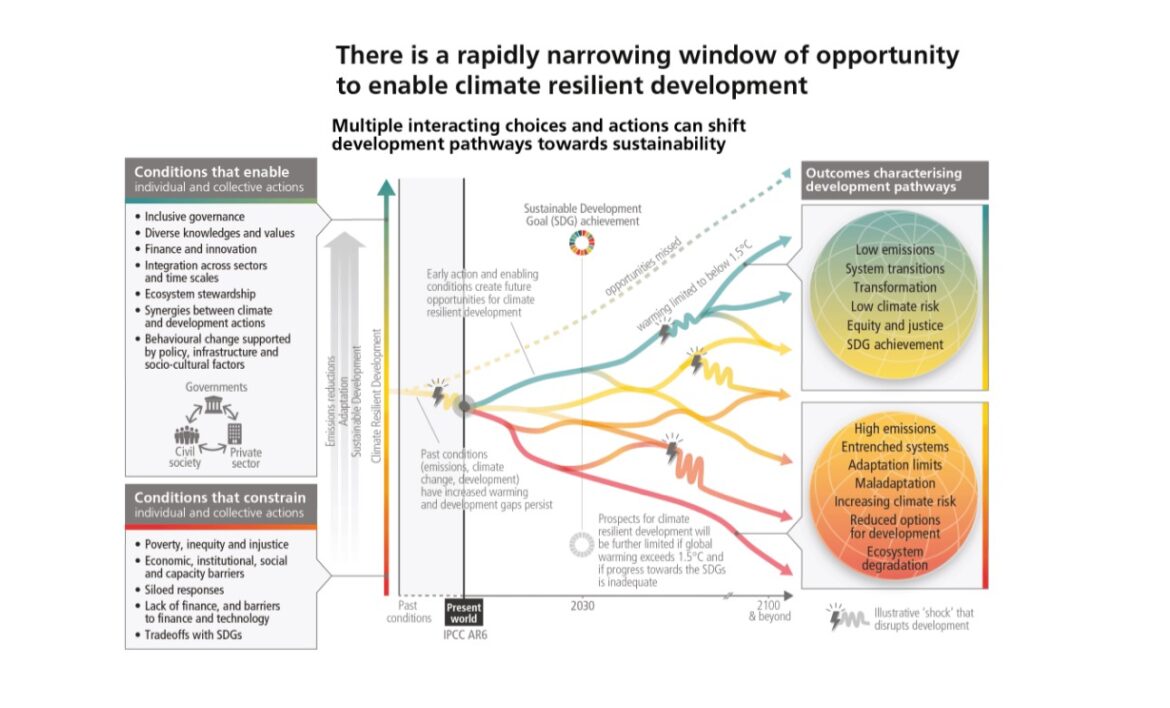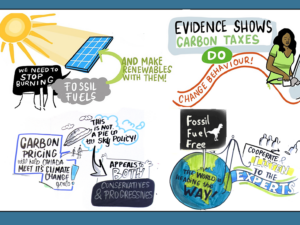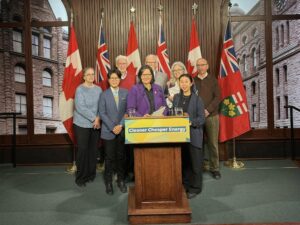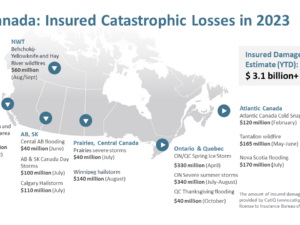FOR IMMEDIATE RELEASE: March 20, 2023 On Monday, March 20, 2023, in Interlaken, Switzerland, the IPCC released its final assessment report in its sixth cycle (AR6) – the Synthesis report. The report is a how-to guide on defusing the climate time bomb. “New in the IPCC AR6 synthesis report is that the planet will reach 1.5 C in the early 2030s which was jarring to hear. Now there is an urgent call for developed nations to reach net-zero by 2040 and developing nations by 2050, ” says Cathy Orlando, National Director of Citizens’ Climate Lobby Canada. “The good news is that it is achievable.” The United Nations Secretary-General António Guterres announced a plan to massively fast-track climate action. He was clear that emissions need to go down now and be cut by almost half by 2030, if this goal has any chance of being achieved. He has proposed a G-20 Climate Solidarity Pact that includes an Acceleration Agenda. This Agenda calls for an end to coal, net-zero electricity generation by 2035 for all developed countries and 2040 for the rest of the world, and a stop to all licensing or funding of new oil and gas, and any expansion of existing oil and gas reserves. These measures must accompany safeguards for the most vulnerable communities, scaling up finance and capacities for adaptation and loss and damage, and promoting reforms to ensure Multilateral Development Banks such as the World Bank provide more grants and loans and fully mobilize private finance. The report finds that the economic benefits for people’s health from air quality improvements alone would be roughly the same, or possibly even larger than the costs of reducing or avoiding emissions. Climate resilient development becomes progressively more challenging with every increment of warming. This is why the choices made in the next few years will play a critical role in deciding our future and that of generations to come. To be effective, these choices need to be rooted in our diverse values, worldviews, and knowledge, including scientific knowledge, Indigenous Knowledge, and local knowledge. This approach will facilitate climate-resilient development and allow locally appropriate, socially acceptable solutions. Finance, technology, and international cooperation are critical enablers for accelerated climate action. If climate goals are to be achieved, both adaptation and mitigation financing would need to increase many-fold. Happily, the synthesis report is quite clear that there is sufficient global capital to rapidly reduce greenhouse gas pollution if existing barriers are reduced. Increasing finance to climate investments is important to achieve global climate goals. Governments, through public funding and clear signals to investors, are key in reducing these barriers. Investors, central banks, and financial regulators must also play their part. The taxpayer need not bear the brunt of the low-carbon transition. The 2018 Yellow Vest protests in France and Canada and the current inflation crisis are clear indications that taxpayers cannot bear more taxes. Much of the trillions of dollars of financing for fossil fuels come from the private sector. Thus, redirecting private sector finance away from fossil fuels is key. Policies such as an incrementally rising price on carbon pollution pricing with equal dividends to households, carbon border adjustment mechanisms, reforms at the World Bank, and climate risk disclosure rules for financial institutions would provide clear signals to redirect financial flows away from fossil fuels while not burdening the taxpayer. Achim Steiner, Administrator of the UN Development Programme (UNDP), pointed to signs that the journey to net-zero is picking up pace. This includes the Inflation Reduction Act in the U.S., described as ‘the most significant legislation in history to tackle the climate crisis’, and the European Union’s latest Green Deal Industrial Plan, a strategy to make the block the home of clean technology and green jobs. We must diffuse the climate time-bomb now and Canada is already part of the way there. We have a world-class greenhouse gas pollution pricing policy, and our government is working closely with international partners in developing carbon border adjustment mechanisms. This year the World Bank is undergoing reforms and Canada should lead on those reforms. Lastly, we need to consider climate risk disclosure rules such as those found in Senator Rosa Galvez’s private member’s bill S-243, The Climate-Aligned Finance Act. Citizens’ Climate Lobby Canada is currently pushing all those fronts. There is no time to lose. Our children are watching, and we teach them by doing what needs to be done.IPCC Synthesis Report: Defuse the Climate Time-Bomb
Media Contact: Cathy Orlando, National Director, Citizens Climate Lobby Canada, 705 929 4043 cathy@citizensclimate.org
AR6-Synthesis Report Media Release
AR6- Synthesis Report YouTube Media Event
AR6- Synthesis Report – Address by Secretary-General António Guterres
AR6 – Synthesis Report – Summary for Policy Makers
AR6 – Synthesis Report Website
AR6 Slides
IPCC Synthesis Report: Defuse the Climate Time-Bomb
Home » CCL Canada News » IPCC Synthesis Report: Defuse the Climate Time-Bomb
IPCC resources:
###







